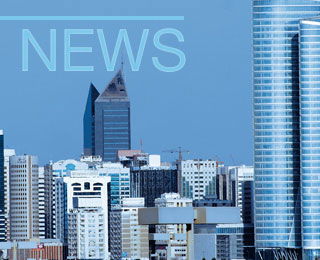Turnover at FLS Industries declined by 9.3 per cent to DKr14,911m (€2006.6m) in 2003, principally reflecting the divestment of non-core businesses. Continuing high processing costs at the environmental division FLS Miljø led to the group reporting a loss even at the EBITDA level. This was DKr101m (€13.6m) compared with a DKr317m profit in 2002. As substantial reduction in shareholders’ funds, principally by writing down the assets of FLS Aerospace where a sale was agreed last month, gearing rose from 51.5 per cent to 83.8 per cent in spite of a 17.2 per cent reduction in net debt to DKr2445m (€329.0m).
In the future, FLS is going to concentrate on its engineering activities serving the cement and minerals industries and as a result, both Aalborg Portland Cement and Unicon A/S is the leading ready-mixed concrete producer in the Nordic area are to be sold - if a buyer willing to pay the right price can be found.
FLSmidth Group, now the sole remaining core business, saw turnover increase by 7.1 per cent to DKr8269m (€1112.8m), with the order intake during 2003 virtually unchanged on the previous year at DKr8752m (€1177.8m). Of the new orders secured, 72.3 per cent came from the cement industry. With approaching DKr200m of costs on large turnkey projects secured in earlier years being charged to the profit & loss account, the EBITDA dropped by 47.5 per cent to DKr107m (€14.4m). The sales of spare parts and services stagnated last year after several years of rapid growth and this probably also has some bearing on the reduction in profitability.
FLS Building Materials saw turnover fall by 23.6 per cent to DKr3744m (€503.9m) reflecting the divestment of a number of Unicon operations no longer deemed core, such as the North American business. EBITDA declined more slowly, by 13.9 per cent, to DKr713m (€60.0m) as cement came to account for a greater proportion of the total. Aalborg Portland used its 2.0Mt of grey cement capacity to the full and, thanks to the acquisition of importer Mørchs Cement, the domestic tonnage was slightly ahead in spite of a four per cent reduction in the Danish cement market. The installation of a chlorine removal unit enables the portion of alternative fuels, consisting principally of processed waste, dried sewage and bone meal, to be increased further. The increase in the white cement capacity at the Aalborg works from 0.62Mt to 0.85Mt has increased the group’s white cement capacity to 1.5Mt, with capacity at the 45 per cent-owned Sinai White Portland Cement set to increase from 0.34Mt to 0.41Mt during the course of 2004.
Weaker demand in Norway and Denmark and a weak year in Poland led to a 1.7 per cent drop in Unicon’s ready-mixed concrete deliveries to 1.90m cu.m although six additional batching plants were acquired in Norway. Losses at the fibre cement producer Dansk Eternit Holding rose almost five-fold to DKr73m (€9.8m), but with the transfer of all production to the Czech Republic, should break even at the trading level this year and return to profits in 2005.
The decision to try to sell off Aalborg and Unicom does pose the question about the longer term viability of FLS Industries. Having lost close to DKr2bn of shareholder funds with the disposal of FLS Aerospace, this latest move to sell both Aalborg and Unicom for, at best, possibly not much more than DKr4.5bn in a bid to regain some shareholder value will provide a boost for FLS management, but for how long? Possibly 4-5 years at best before, shareholders have to think again. Bad news all round we think, but a great opportunity perhaps for Cemex to further consolidate its position in the global white cement market plus a good foothold in northern Europe for up to 2Mt of grey cement sales.
